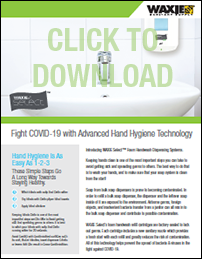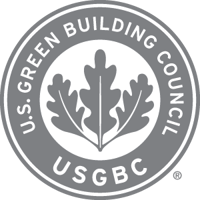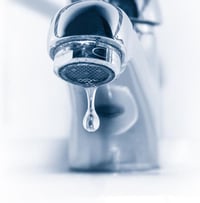Fight COVID-19 with Advanced Hand Hygiene Technology – Clean Hands Save Lives!
Keeping hands clean is one of the most important steps we can take to avoid getting sick and spreading germs to others.
Introducing KleenLine™ Foam Handwash Dispensing Systems. The sad truth is that soap from bulk soap dispensers is prone to becoming contaminated, so instead of removing germs, they may be adding some! 
Think about it – in order to refill a bulk soap dispenser, the dispenser and the left over soap remaining inside of it are exposed to the environment. Airborne germs, foreign objects, and potential inadvertent hand contact from a janitor who may have just cleaned the toilets can all mix in to the bulk soap dispenser and contribute to possible contamination.
In the healthcare industry, it has been long accepted that a sealed soap dispensing system is necessary to better ensure infection control. KleenLine's foam handwash refill cartridges are factory-sealed to lock out germs, and each cartridge includes a fresh and sanitary nozzle, reducing the risk of contamination and delivers clean hands in the fight against COVID-19.
Hand soaps are essential to any facility’s sustainability & wellness program
Facility managers are increasingly looking for more sustainable solutions—from cleaning products and programs to consumables—to improve the health & wellness of building occupants. The reasons for this are varied, but may include:
- Implementation of an environmentally preferred purchasing program
- Complying with an executive order
- Pursuing LEED® Green Building Certification
- A desire to have a clean, green & healthy building
Hand soaps are essential to any facility’s sustainability & wellness program, and having a solid hand hygiene system prevents the spread of germs & helps everyone stay healthy. Better yet, there are many “green” hand soap options available to choose from. But not all of these hand soaps are created equally. Here’s what to look for when determining what “green” hand soaps are right for your facility.
No Antimicrobial Agents
Our society has been erroneously led to believe that antimicrobial or antibacterial hand soaps are the best options, but that is not necessarily the case. Unless you work in a healthcare of food service setting where an antibacterial hand soap is required, a regular good old-fashioned hand soap is really all you need.
Think about it – it doesn’t matter if the bacteria on your hands is alive or dead, as long as it is washed off your hands and down into the sink.
As a matter of fact the U.S. Food and Drug Administration (FDA) has recently banned the use of 19 active ingredients commonly found in antibacterial hand soaps. The reasons?: Because there wasn’t enough empirical evidence to prove that the antibacterial hand soap actually performed better than regular hand soap, and there was concern that these ingredients may actually pose a long term health risk.
In addition, many people are sensitive to ingredients found in antimicrobial hand soaps – to say nothing of the fact that antimicrobial hand soaps are potentially more expensive.
Third-Party Certification
To help institutional purchasers identify more sustainable product options, organizations like UL and Green Seal have developed standards for a wide range of products including hand soaps.
For UL, the standard which has been developed is UL 2784, and for Green Seal the standard which has been developed is GS-41. Each of these standards considers the human health and environment impacts for the products being evaluated for certification. Product characteristics such as skin sensitivity and biodegradability, as well as recycled and recyclable product packaging, are taken into account, and each product must meet or exceed performance requirements as described in the relevant standard in order to earn certification.

In addition, the EPA Safer Choice program screens all ingredients in a product formulation to ensure that each product which has been certified has a safer human health and environmental impact profile.
Finally, the USDA BioPreferred program identifies products which contain a high percentage of biobased ingredients. Biobased products are defined by the USDA as “products are derived from plants and other renewable agricultural, marine, and forestry materials and provide an alternative to conventional petroleum derived products. Biobased products include diverse categories such as lubricants, detergents, inks, fertilizers, and bioplastics. Biobased products do not include food, feed, or fuel.” In order to earn this certification, hand soap products must contain a minimum of 64% biobased ingredients.
 LEED Certification Considerations
LEED Certification Considerations
According to the LEED Green Building Rating System*, a LEED for Operations + Maintenance project is required to “develop strategies for promoting and improving hand hygiene, including both hand washing and the use of alcohol-based waterless hand sanitizers.” as part of an overall prerequisite to ”have in place a green cleaning policy for the building and site addressing the green cleaning credits, goals and strategies…” and that “at a minimum, the policy must cover green cleaning procedures, materials, and services that are within the building and site management’s control, and include the organization responsible for cleaning the building and building site.”
The purpose for this hand hygiene requirement is help protect building occupant health and wellness by promoting hand hygiene strategies in order to increase the frequency and effectiveness of hand washing with soap and water. In addition it is also important to supplement this hand washing promotion by providing alcohol-based waterless sanitizers for when occupants do not have immediate access to soap and water.
When purchasing hand soaps to contribute to your hand hygiene program, the LEED rating system requires that soaps either be Green Seal, UL ECOLOGO, or EPA Safer Choice certified, or that they contain no antimicrobial agents.
Washing your hands is the first step to hand hygiene – the next step is to dry your hands with a paper towel, and the LEED rating system requires that hand towels either be Green Seal or UL ECOLOGO certified, meet the EPA Comprehensive Procurement Guidelines for post-consumer recycled content, be FSC certified for fiber procurement, or be derived from rapidly renewable resources or tree-free fibers.
Even if your building is not interested in pursuing LEED certification, this standard can still be used as a blueprint for best practices – and as a matter of fact, the standard itself is a representation of best practices as voted on by the USGBC membership community which is comprised of individuals from the business (including building owners, facility management and the cleaning industry), education, healthcare, hospitality and government sectors.
 Other Sustainability Considerations – Including Water Savings
Other Sustainability Considerations – Including Water Savings
When you wash your hands, water is required, right? But what if there was a hand soap formulation which has been demonstrated to require less water due to its superior rinsing performance?
The Clean Release Technology formulations from GOJO have been tested to validate that due to the optimization of interfacial tension, hand soaps which include CRT remove 30% more soil and use 5.99 less gallons of water per 1200 ml refill – all of which is a fancy way of saying that the CRT products simply work better than competitive soap products, delivering cleaner hands faster using less water.

KleenLine Foam Handwash Dispensing System
What if there was a hand soap system which incorporated most of these sustainability characteristics?
Check out the KleenLine Foam Handwash Dispensing System to see how many characteristics can be considered more sustainable than other hand soap options:
- No antimicrobial agents ✓
- Third-party certification (UL 2789 certified) ✓
- Recycled and recyclable packaging ✓
- Biobased formulation (90% biobased formula, exceeding the 64% minimum) ✓
- Water saving CRT formula available (KleenLine Boost products) ✓
- Sanitary sealed dispenser ✓
Please contact your WAXIE Account Consultant to determine if the KleenLine Foam Handwash System would be the right “green” hand soap for your facility!




 LEED Certification Considerations
LEED Certification Considerations Other Sustainability Considerations – Including Water Savings
Other Sustainability Considerations – Including Water Savings
